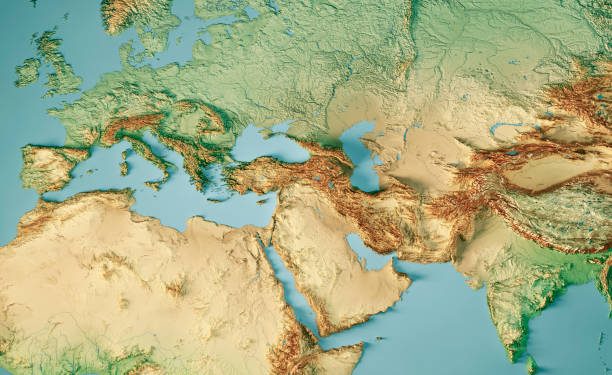The Middle East has long been a region fraught with geopolitical tensions, driven by a complex tapestry of historical, religious, and political factors. As these tensions persist and sometimes escalate, their implications reverberate far beyond the region, affecting global stability and quality of life. These conflicts add to the already significant burdens posed by other global crises, such as the ongoing war between Russia and Ukraine.
Current Tensions in the Middle East
The Middle East is currently experiencing several hotspots of conflict and tension:
Iran and U.S. Relations
The relationship between Iran and the United States remains strained, with disputes over Iran’s nuclear program and regional influence causing frequent diplomatic standoffs and sanctions.
Israel and Palestine
The Israeli-Palestinian conflict continues to be a major source of tension, with periodic escalations leading to loss of life and humanitarian crises.
Yemen Civil War
The civil war in Yemen, involving various regional powers, has resulted in one of the world’s worst humanitarian crises, with millions facing starvation and disease.
Syria
The Syrian civil war, although less intense than in its peak years, still creates regional instability and involves multiple international actors with conflicting interests.
Lebanon’s Economic Crisis
Lebanon is grappling with a severe economic crisis that has led to political instability and social unrest.
Global Implications of Middle Eastern Tensions
The tensions in the Middle East have several significant global implications:
Energy Security
The Middle East is a crucial supplier of oil and gas to the world. Any instability in this region can lead to disruptions in energy supplies, causing fluctuations in global oil prices. This was evident during past conflicts where threats to key shipping routes, like the Strait of Hormuz, sparked fears of supply shortages.
Global Trade
The region’s strategic location means that conflicts can disrupt major trade routes. For example, the Suez Canal is a critical artery for international maritime trade, and any instability in Egypt can have ripple effects on global commerce.
Humanitarian Concerns
Conflicts in the Middle East often lead to large-scale displacement of people, contributing to the global refugee crisis. Neighboring countries and regions, including Europe, feel the impact as they deal with influxes of refugees seeking safety and better living conditions.
Terrorism and Security
Regional instability can provide fertile ground for terrorist organizations to operate, posing security threats not only within the Middle East but globally. The rise of groups like ISIS demonstrated how local conflicts could have worldwide security repercussions.
Economic Strain
The costs associated with conflicts—both direct and indirect—can strain global economies. Military expenditures, humanitarian aid, and reconstruction efforts require significant financial resources.
The ongoing conflict between Russia and Ukraine has compounded these global burdens. The Russia-Ukraine war had already disrupted energy supplies from Russia, leading to increased prices and energy insecurity, especially in Europe.
This has heightened the global reliance on Middle Eastern oil and gas, making stability in that region even more critical.
Ukraine is a major exporter of grains. The conflict has disrupted agricultural production and export, exacerbating food shortages and price increases worldwide, particularly affecting developing countries. Sanctions on Russia and the economic impacts of the war have contributed to global inflation and economic instability, making it harder for countries to recover from the economic downturn caused by the COVID-19 pandemic.
These compounded conflicts have significant implications for the quality of life worldwide:
1. Cost of Living: Rising energy and food prices contribute to increased living costs, which can lead to economic hardship for families and individuals, particularly in lower-income regions.
2. Security and Stability: Increased global tensions and instability can lead to a heightened sense of insecurity, impacting mental health and societal well-being.
3. Humanitarian Crises: The strain on resources to address multiple humanitarian crises simultaneously reduces the ability of the international community to respond effectively, leaving vulnerable populations at greater risk.
The tensions in the Middle East, coupled with the ongoing Russia-Ukraine war, create a complex web of global challenges. Addressing these issues requires concerted international efforts to promote stability, ensure energy and food security, and provide humanitarian assistance. While the path forward is fraught with difficulties, a collaborative approach is essential to mitigate the impacts and improve the quality of life for people around the world.






















